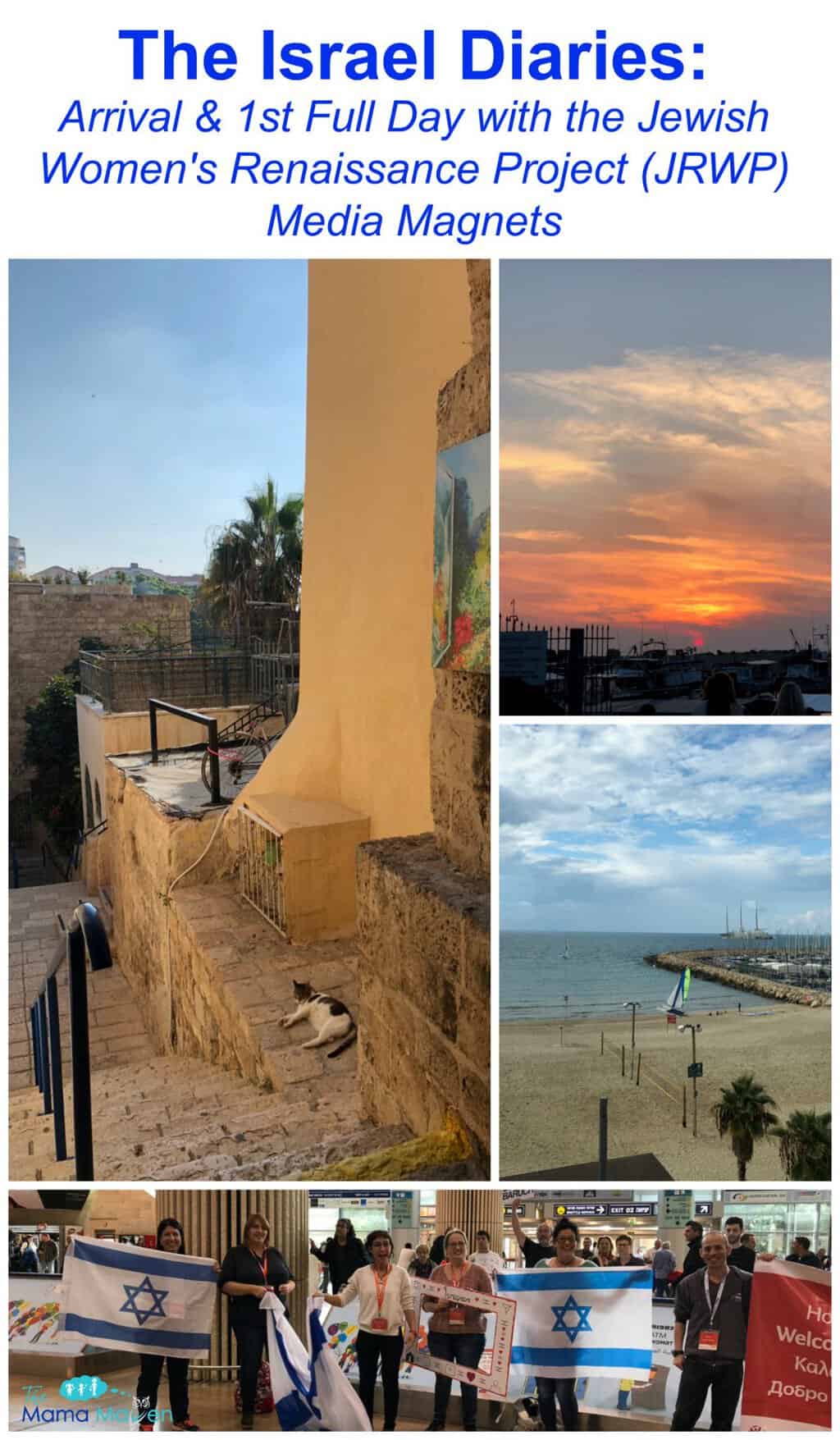By Eric Horn, Mr. Mama Maven
Out of the window of the airplane I saw a massive plume of smoke rising from the ground in Gaza. It smoldered above the blanket of clouds, at the far horizon, almost emphasizing that this would be a very different trip. I was on my way to go volunteering in Israel with Sar-El.
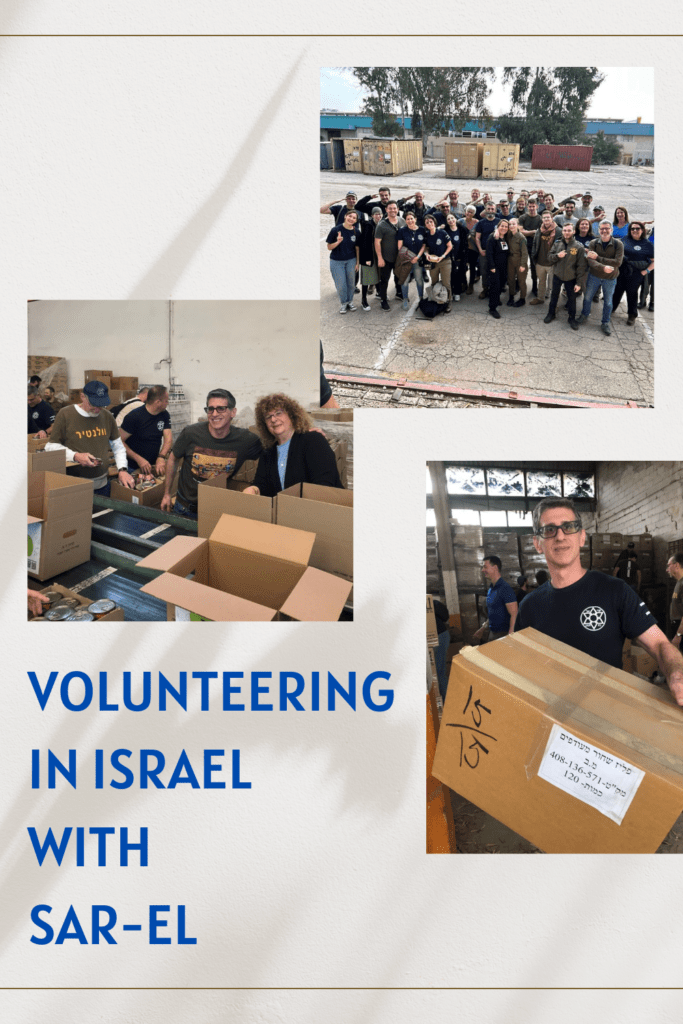
After the horrific massacre that took place in Israel on October 7th, like many Jews I felt staggered and lost. My family had given what we could financially, to charities in Israel, but I still felt helpless to help Israel in its war against Hamas. Reading the news and staying informed did not contribute directly. I wanted to do something more substantial. Then I remembered I had volunteered for the Sar-El program in Israel years ago. In that program, volunteers are assigned to an army base where they provide logistical support to the Israeli Defense Forces (IDF). I immediately signed up for Sar-El and several weeks later I was on a plane about to land.
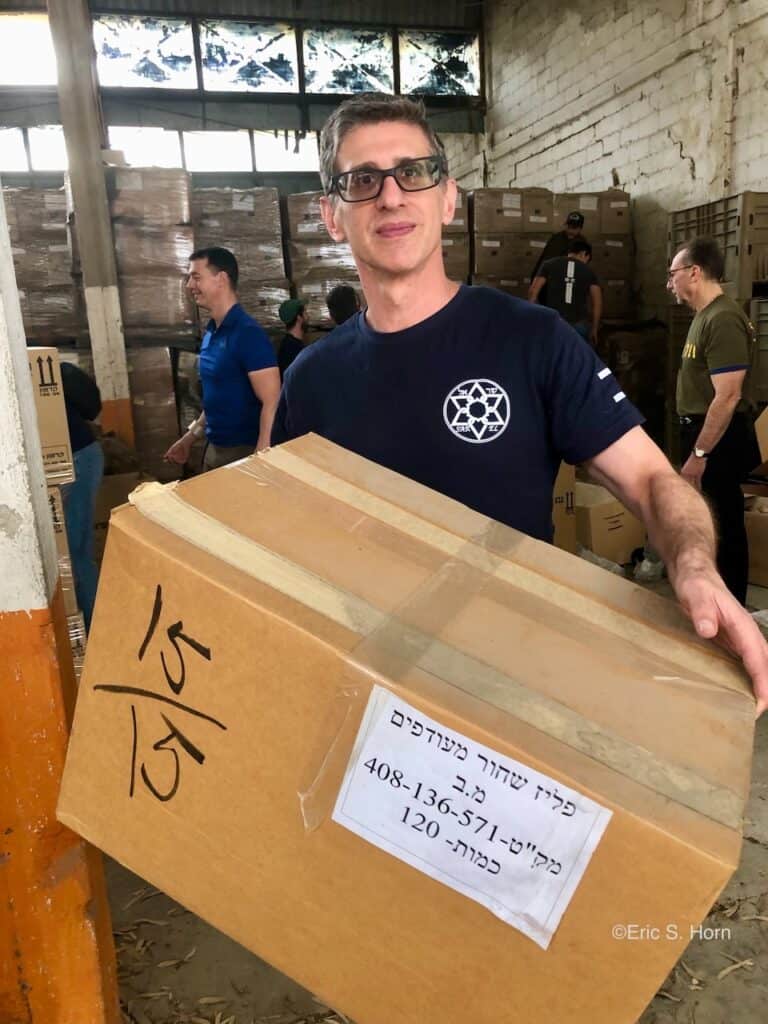
I have spent more time in Israel than any other country outside of the United States. I first visited with my immediate family, for my older brother’s Bar Mitzvah when I was 11. I spent a semester abroad at Ben Gurion University in Beer Sheva. Then I returned on the World Union of Jewish Students program and lived and worked in Israel for almost three years. My last visit, before volunteering for Sar-El, was for my oldest son’s Bar Mitzvah.
I didn’t know what to expect for this trip. Although I have lived in Tel Aviv during a spate of terrorist attacks from Hamas in the mid to late 90’s, including one that I narrowly missed by five minutes, I have never been to Israel during an actual war. However, while the airport had far fewer people than usual, things did not seem to be that far out of the ordinary after I disembarked.
As I rode in a taxi, I saw an incredible amount of development, with cranes everywhere. There was even more construction going on than what I saw five years before during the Bar Mitzvah trip. I found it amazing how much Israel had continued to develop and not only the addition of high buildings, but also numerous parks and transportation infrastructure. It wasn’t just sprawl. It was extremely well planned and gorgeous.
Inevitably my conversation with the cab driver went from how beautiful everything looked to current affairs with the war. He said things had been relatively quiet in the center of the country after facing many days with sirens driving them to bomb shelters due to rockets fired by Hamas. The normalcy that had returned to the country during this lull took me by surprise. There were people in the restaurants and bars, and even hanging out on the beach. I was expecting to have a very quiet or even unsettled stay in Tel Aviv the first weekend, but it was enjoyable. I spent the weekend walking along the boardwalk by the sea and strolling to parks and cafes. However, I was aware that this calm could be broken at any moment. I kept my phone handy so that I could hear alerts from the Tzofar app (apple version and android version) that would inform me if there are missiles or drones in the area. During the weekend there were frequent reports of attacks from Gaza and Lebanon on the border communities, but the central region remained quiet. Just because it was relatively quiet in the center of the country, I definitely do not want to make light of this as there were still tens of thousands of Israelis displaced from these communities.
That Sunday, I returned to the airport to register for my Sar-El assignment. There was a lot more activity that day. While Sar-El usually has 2-3 dozen people at a time, almost 300 people were registering that weekend. As I would soon learn, they came from all over the world. From numerous countries in South American and Europe; across the United States and Canada; as well as South Africa, Australia, and New Zealand. While most of the volunteers were Jewish, there were many non-Jews who wanted to give their support during the war.
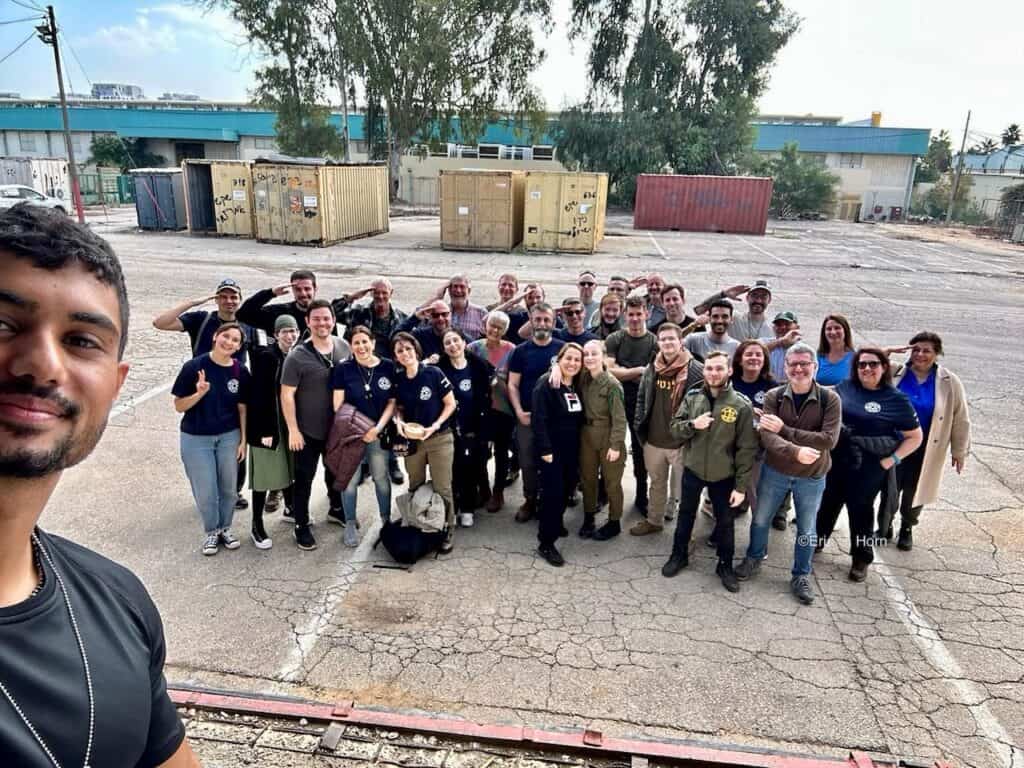
I was assigned to work on an assembly line, helping pack rations for the soldiers in Gaza. Each box that we filled would feed four soldiers. We arrived in the warehouse to a standing ovation from the Israelis working at the facility. It took us by surprise. On several occasions we were told how much it meant to the Israelis to have fellow Jews and non-Jews drop what they were doing and travel from around the world to help them. We also were fortunate to have Israelis come to the assembly line to help pack the rations. Twice we had groups of high school students come. We were also joined by lovely a group of ladies from Rosh Ha Ayin who had volunteered every Tuesday since the outbreak of war. Another group that joined us were from El Al’s human resources department. It was delightful getting to know all of these people and we listened to music and sang as we worked.
I also worked on a food packaging assembly line at another base, preparing gluten free rations, and at a third base packaged apparel and body armor. The work at the third base included organizing and packaging cold weather clothing, socks, and combat boots. It also involved going through protective body armor for knees, shoulders, and elbows; discarding equipment that was no longer usable and re-packaging the rest to be sent back to the front.
During the first week, there were two sirens my immediate area. The first was while I was on base. We were instructed that we had a minute and a half to reach the bomb shelters after the sirens began sounding. This is plenty of time to walk briskly but without going too fast to reach shelter. The second siren sounded while we were on the bus. Since there was not a shelter readily available, we stood against a wall as cover. On both occasions the IDF used its Iron Dome missile defense system and shot down the rockets. The second time I could actually see one of the Iron Dome missiles flying through the sky and we saw the numerous clouds of smoke where Iron Dome’s missiles struck down Hamas’ rockets.
Sar-El volunteers usually eat all their meals and sleep in the barracks of the base. However, due to the war, there was not enough room for all of the army reservists to sleep on the base. Therefore, Sar-El volunteers were housed off base and were bused in and out of the base. We were given breakfast and dinner at this location and lunch on base. I must say that the army food was surprisingly good, and one base even had delicious babka and ruggelah for dessert.
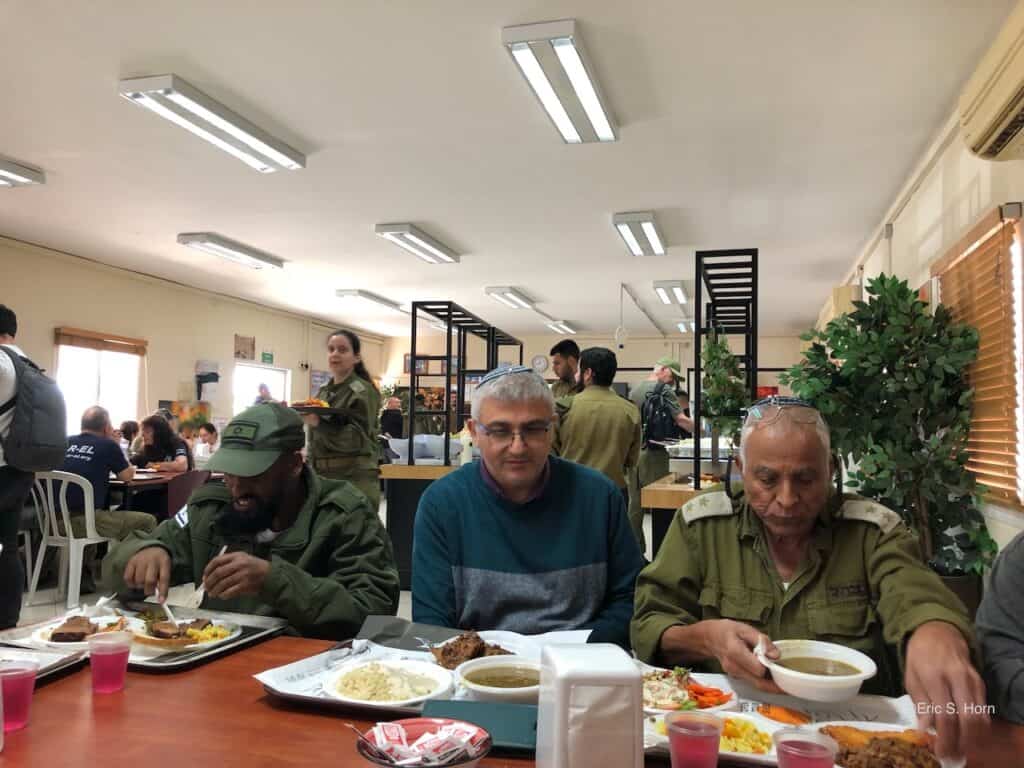
During the evenings we had activities. The most touching activity involved everyone telling the group who they are, where they came from, and why they came. Although some of the details varied, in the end, we were drawn from the corners of the world to help the Jewish people and the Jewish state in its time of need.
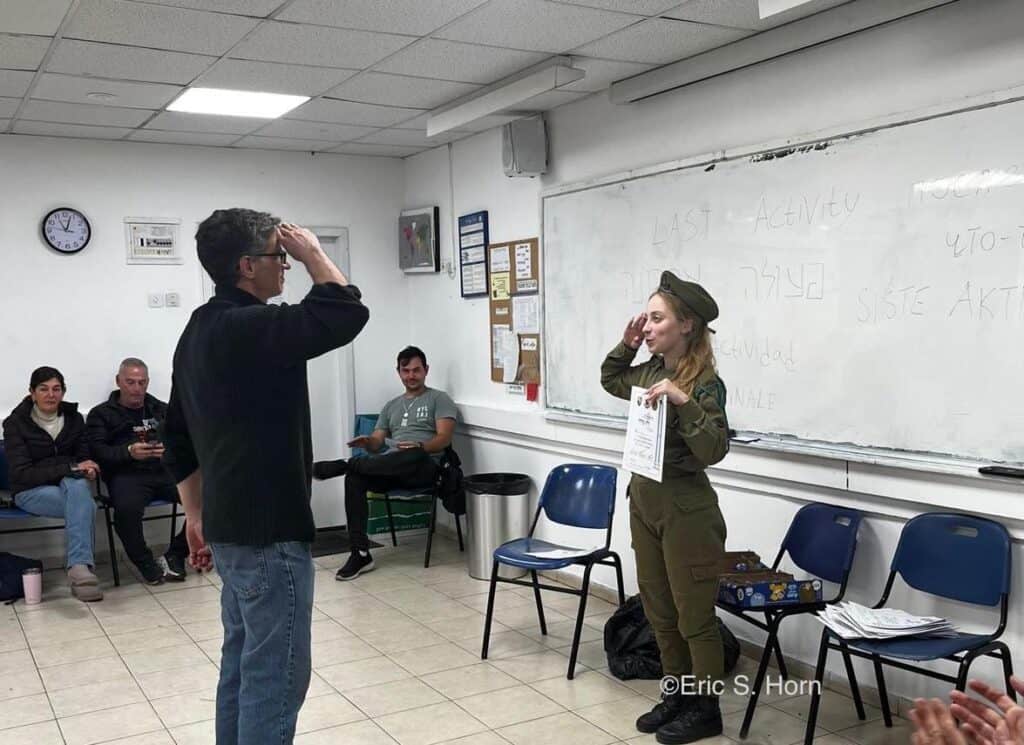
Even though we could only offer modest help, we were able to contribute. I think our presence meant as much to the Israelis as the work we did, and I think just being able to help did a lot of good for our souls. I enjoyed volunteering in Israel with Sar-El.
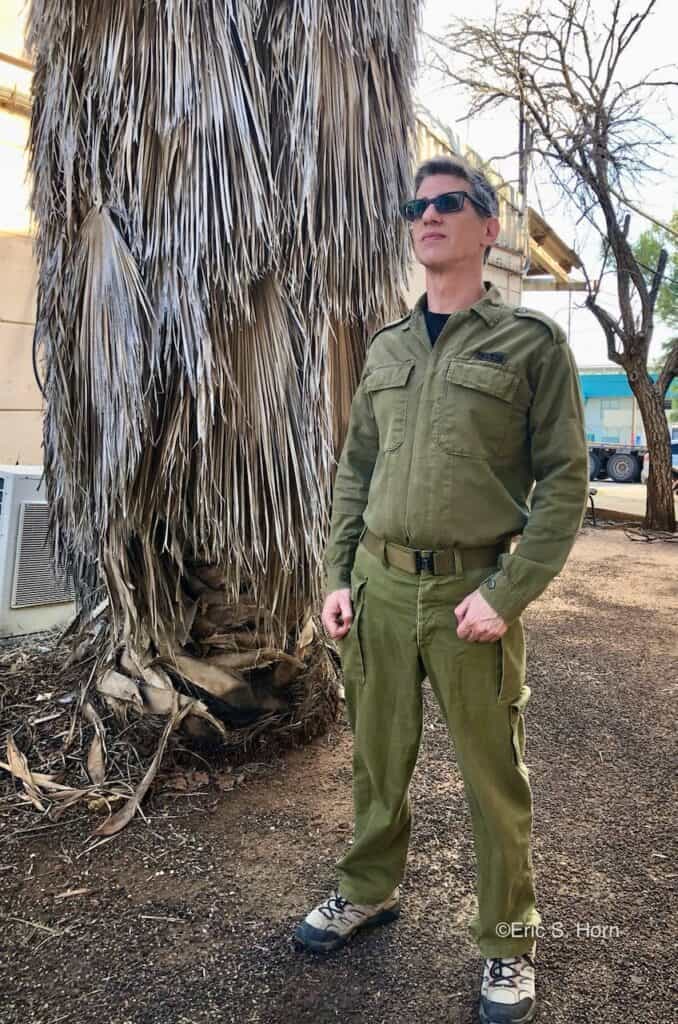
Get more info about Sar El at https://www.sar-el.org.


